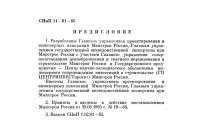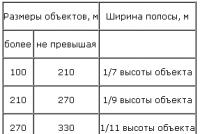They are not subject to compulsory health insurance. Object, subjects and participants of health insurance. Insurance medical organizations
1. In contrast to the earlier legislation in force, the commented article distinguishes between the circle of "subjects of compulsory health insurance" and "participants of compulsory health insurance".
In the previously effective Law of the Russian Federation of June 28, 1991 N 1499-1, "a citizen, an insured, an insurance medical organization, a medical institution" were called as subjects of medical insurance (Article 2). It was assumed that the subjects are simultaneously participants in compulsory health insurance. Both subjects and participants of compulsory health insurance participate in a compulsory health insurance relationship and at the same time have their own specific roles and their own terms of reference.
The main direct actors of the CHI are the subjects. Perhaps, the main difference subjects from participants is that the legal status of the subjects is strictly determined by law and their composition is mandatory.
The presence of an insurer, a policyholder and an insured person is a "classic" model of any compulsory insurance.
Between oMS participants agreements are concluded on financial support OMS and contracts for the provision and payment medical care on compulsory medical insurance.
In particular, to insured persons included working and non-working citizens of the Russian Federation.
It has been established that foreign citizens and stateless persons permanently or temporarily residing in Russia have the same rights and obligations in the compulsory medical insurance system as citizens of the Russian Federation.
Participants can be legal entities created and acting on the basis of current legislation and performing "auxiliary" functions in the MLA.
A single insurer in the CHI system named Federal fund OMS (Clause 3, Part 1 of the commented article).
Separate powers of the insurer are exercised by the territorial CHI funds and medical insurance organizations that have the status of participants.
Insured with compulsory medical insurance are:
- for the non-working population - executive authorities of the constituent entities of the Russian Federation;
- for the working population - employers, which include
Organizations,
Individuals registered as individual entrepreneurs,
Notaries in private practice
Lawyers,
Individuals who have entered into employment contracts with employees, as well as pay remuneration under civil law contracts, on which, in accordance with the legislation of the Russian Federation, taxes are charged in the part subject to enrollment in compulsory health insurance funds.
Medical organizations are also full participants in the CHI system.
Medical facilities include:
Treatment-and-prophylactic institutions, research institutes, medical institutes, other institutions providing medical assistance;
Features of health insurance in the Russian Federation (history of formation). Federal, regional programs of state guarantees for providing the population with medical care.
The need for health insurance stems from the main characteristics of the medical services market, one of which is “uncertainty”.
For each person, the disease is most often unpredictable, therefore, it is impossible to "plan" its onset, and with it the need for financial costs (for medicines, examination, treatment, for everyday needs in case of disability). Moreover, assistance can be very costly and inaccessible when one-time payment is required. Insurance can counter the financial burden of unpredictable and uncertain costs. At the same time, people, as a rule, are insured not against poor health, but against future financial expenses associated with this.
As health insurance purposes can be called:
A guarantee to citizens at the expense of funds accumulated in insurance funds to receive medical care of a certain quality when insured event - disease, injury, accident, etc .;
A guarantee to the manufacturer of medical care to pay for the costs associated with the provision of medical care to insured citizens.
The set goals can be achieved by solving the following complex health insurance objectives :
creation of a system of subjects - legal entitieslegislatively responsible for the formation of medical and technical conditions to ensure the provision of high-quality medical care to the population;
decentralization of the rigid system of healthcare management, granting the right to make decisions to healthcare institutions, ensuring from a legal point of view their activities as independent economic entities;
demonopolization of the state health care system, ensuring participation in the health insurance system of medical service providers, regardless of their form of ownership;
ensuring legal and socio-economic protection of the interests of consumers of medical services using the institution of qualified intermediaries (insurance companies);
strengthening and expanding the use of economic management methods: on the part of the manufacturer - the creation of economic interest in the results of his work, on the part of the consumer - the education of personal responsibility for the state of his health, as well as the creation of conditions for interest in maintaining and strengthening health.
The law "On medical insurance of citizens of the RSFSR" was adopted on June 28, 1991, but it turned out to be not entirely efficient, since it did not contain a clear implementation mechanism. Therefore, by the law of April 2, 1993 No. “On Amendments and Addenda to the Law of the RSFSR“ On Health Insurance of Citizens in the RSFSR ”, amendments were made to the original law of June 28, 1991, which actually marked the beginning of a large-scale development of the health insurance system.
The law defined two kinds health insurance, each of which has its own principles and financial mechanism of implementation - mandatory and voluntary (comparative analysis is presented in table. 1). According to Art. 1 of the Law "On Medical Insurance of Citizens in the Russian Federation" (hereinafter, extracts and references to the law as amended on April 2, 1993 are given) obligatory health insurance is an integral part of state social insurance, which provides all citizens of the Russian Federation with equal opportunities to receive medical and drug assistance in the amount and on conditions corresponding to compulsory health insurance programs. That is, the compulsory medical insurance is of a state nature, is universal and represents a form of social protection of the interests of the population in the preservation and restoration of health in the difficult socio-economic conditions of the country's transition to rigid market relations. y Basic principles of CHI:
the positive aspects of the state health care system remain - free medical care (at the time of receipt) within the compulsory medical insurance program, universality and availability;
the principles of "social justice" and "public solidarity" are used, when "the rich pays for the poor", "healthy for the sick" (such principles are incorporated in the health insurance systems of most states with socially oriented economies);
due to the high degree of financial risk given view insurance is irrevocable;
the choice of a doctor and a healthcare facility by a patient (within the framework of compulsory medical insurance agreements) essentially implies the abolition of the territorial-territorial principle of organizing medical care, the role of primary medical and social care is significantly increasing.
Compulsory health insurance, its subjects
As noted earlier, compulsory health insurance in the Russian Federation is an integral part of state social insurance. The structure of the CHI system includes the following subjects: a citizen (insured), an insured, an insurance medical organization (HMI), a medical institution.
Citizen (insured)
Citizens of the Russian Federation in the health insurance system (Article 6 of the Law) have the right to:
compulsory and voluntary health insurance,
choice of CMO;
choice of a medical institution and a doctor in accordance with compulsory and voluntary medical insurance contracts;
receiving medical care throughout the territory of the Russian Federation, including outside the permanent place of residence;
receiving medical servicesthat correspond in volume and quality to the terms of the contract, regardless of the amount of the actually paid insurance premium;
filing a claim against the insured, an insurance medical organization, a medical institution, including for material compensation for damage caused through their fault, regardless of whether this is provided for in the health insurance contract;
Reimbursement of a part of insurance premiums for voluntary health insurance, if it is determined by the terms of the contract.
Stateless persons on the territory of the Russian Federation have the same rights and obligations in the CHI system as citizens of the Russian Federation (Article 7 of the Law). Medical insurance of Russian citizens staying abroad, as well as foreign citizens temporarily staying in the Russian Federation, is carried out on the basis of bilateral agreements of the Russian Federation with the host countries of citizens, or in the manner established by the Government of the Russian Federation.
Medical insurance is carried out on the basis of contracts concluded between medical insurance organizations and policyholders. Every citizen in respect of whom an insurance contract has been concluded receives an insurance policy. The insurance policy is in the hands of the insured
The form of medical insurance policy for compulsory medical insurance is approved by the Government of the Russian Federation.
Medical insurance compulsory medical insurance policy is valid throughout the territory of the Russian Federation, regardless of the place of issue, as well as in the territories of other states with which the Russian Federation has agreements on health insurance for citizens.
Policyholder
The insured under compulsory medical insurance are:
for the non-working population (children, pupils and full-time students, pensioners, disabled persons, registered unemployed in accordance with the established procedure) - the executive authorities of the corresponding administrative territory;
for the working population - enterprises, institutions, organizations, persons engaged in self-employment, and persons of free professions, i.e. persons of creative professions, not united in creative unions.
The policyholder has the right on (from Article 9 of the Law):
participation in all types of health insurance,
free choice of an insurance company,
monitoring the fulfillment of the terms of the health insurance contract.
(The insured company has the right to raise funds from the profits for the voluntary medical insurance of its employees).
The policyholder is obliged:
conclude a compulsory medical insurance agreement with an insurance medical organization,
make contributions in order, established by law and a health insurance contract,
within the limits of their competence, take measures to eliminate adverse factors affecting the health of citizens.
The subjects of health insurance are: a citizen, an insured, an insurance medical organization, a medical institution.
The insurers for compulsory health insurance are the executive authorities of the constituent entities of the Russian Federation and local governments - for the non-working population; organizations, individuals registered as individual entrepreneurs, notaries in private practice, lawyers, individualsthat have entered into employment contracts with employees, as well as pay remuneration under civil law contracts, on which taxes are charged in accordance with the legislation of the Russian Federation in the part subject to enrollment in compulsory health insurance funds - for the working population.
The insurers in voluntary health insurance are individual citizens with civil legal capacity, and / or enterprises representing the interests of citizens.
Medical insurance organizations are legal entities that provide health insurance and have a state permit (license) for the right to engage in health insurance.
Medical institutions in the health insurance system are licensed medical and prophylactic institutions, research and medical institutes, other institutions providing medical assistance, as well as persons engaged in medical activities, both individually and collectively.
20. Financial and legal basis of compulsory health insurance
The financial resources of the state system of compulsory health insurance are formed at the expense of contributions from policyholders for compulsory health insurance.
To implement the state policy in the field of compulsory health insurance, Federal and territorial compulsory health insurance funds are created as independent non-profit financial and credit institutions.
The Federal Compulsory Medical Insurance Fund is created by the Supreme Soviet of the Russian Federation and the Government of the Russian Federation and operates in accordance with the legislation of the Russian Federation.
Territorial compulsory health insurance funds are created by the Supreme Soviets of the republics within the Russian Federation and the governments of the republics within the Russian Federation, the Soviets of People's Deputies of the autonomous region, autonomous okrugs, territories, regions, cities of Moscow and St. Petersburg and the relevant executive authorities and carry out their activities in in accordance with the legislation of the Russian Federation, republics within the Russian Federation, regulatory legal acts of the autonomous region, autonomous districts, territories, regions, cities of Moscow and St. Petersburg.
Compulsory health insurance funds are intended to accumulate funds for compulsory health insurance, ensure the financial stability of the state compulsory health insurance system and equalize financial resources for its implementation.
The financial resources of the compulsory medical insurance funds are in the state ownership of the Russian Federation, are not included in the budgets, and other funds are not subject to withdrawal.
The procedure for collecting insurance premiums for compulsory medical insurance is developed by the Government of the Russian Federation and approved by the Supreme Soviet of the Russian Federation.
Compulsory health insurance funds maintain databases and other information resources in the field of compulsory health insurance of citizens.
The federal executive body responsible for the development of state policy and legal regulation in the field of health care determines the procedure for the formation of the accounting and reporting system, as well as the procedure and conditions for maintaining databases and other information resources in the compulsory health insurance system.
There are four subjects in health insurance, the relationship between which is carried out through contracts: the insurer, the policyholder, the insured, the provider of medical services.
INSURER - an insurance institution that collects insurance premiums, which forms insurance funds, providing from these funds the payment for medical services and other types of monetary and material reimbursements stipulated by contracts.
INSURED physical or legal
(institution or enterprise) person contributing under contracts
with the insurer, contributions to insurance funds, ensure
health insurance. The insured is out of work
the dwindling population is the local administration,
properties are allocated from the state budget according to
level.
INSURED - persons who are provided with medical care and other types of material and monetary compensation provided for by health insurance contracts.
PROVIDER OF MEDICAL SERVICES - a medical institution (enterprise), independently practicing doctors who provide medical services to the insured in accordance with contracts and receive payment for their services from insurers from health insurance funds.
The organizer of health insurance is an insurance company.
Insurance organization:
1) enters into a contract with the policyholder and receives from him
insurance premiums;
2) issues insurance policies the insured for whom they receive medical assistance;
3) concludes contracts with medical institutions and independently practicing doctors and pays for the services rendered by them;
4) participates in the formation of prices for medical services and control over their quality;
5) sets insurance rates.
Insurance rates must provide payment for medical services to the insured and direct income of the insurance organization.
Depending on the use of income, insurance organizations are divided into commercial and non-commercial.
Non-profit - use income to finance the activities of the organization and developed health care, but cannot risk their capital and have the right to invest only in highly reliable securities, enterprises and banks that allow the immediate return of all funds to the insurance organization if necessary.
Commercial - are more free in their operations, can directly capitalize their income in all legal ways, while guaranteeing the fulfillment of their obligations under health insurance contracts. Therefore, such insurance organizations widely use underwriting and reinsurance in their activities.
UNDERWRITING (English undrwriting, literally - subscription) - a system that allows you to study the partners with whom an agreement is concluded in order to establish an insurance rate corresponding to the insured risk. Health study,
conditions and lifestyle of the insured is carried out according to the medical record, testing and conversation with him. At the same time, the need and cost of his medical care is predicted, taking into account his individual characteristics.
REINSURANCE of the capital of an insurance company in a larger company, which takes responsibility for a corresponding share of the income of a smaller company.
The main types of health insurance include:
- Compulsory health insurance - compulsory medical insurance;
Voluntary health insurance - VHI.
OMS is a part of social insurance, which guarantees the population of the country social protection in the form of a certain set of medical services paid for from health insurance funds. This type of insurance was
carried out by the state (for example, Territorial fund OMS) and non-governmental non-profit organizations and is controlled by the state.
The CHI is characterized by: 1) mass character; 2) a guaranteed minimum of medical services; 3) a state or state-controlled organization; 4) subordination to the main goals of the health care system.
Medical assistance is provided to the insured in accordance with the basic compulsory medical insurance program. The basic program determines the volume and conditions for the provision of medical and drug assistance to citizens of the Russian Federation. On the basis of the basic program of the Russian Federation in the regions, a territorial compulsory medical insurance program is being developed and approved, the volume of medical services provided, which cannot be less than the volume established by the basic program. Control over the quality, volume and timing of medical care is carried out by an insurance medical organization, as well as by a healthcare management body.
In accordance with the program, citizens are guaranteed: 1) provision of primary health care, including emergency medical care, diagnosis and treatment on an outpatient basis (including emergency and first-aid care), implementation of measures to prevent diseases; 2) inpatient care.
The scope and conditions of drug assistance are determined territorial programs OMS. Payment for necessary medicines and medical products in the hospital and in the provision of emergency and emergency medical care is carried out at the expense of insurance premiums for compulsory medical insurance. and from outpatient clinics - at the expense of citizens' personal funds.
VHI - can be independent and additional, being additional to the mandatory. It can be individual and group, it is carried out by various, often commercial insurance companies, based on different packages of insurance programs, at differentiated rates, using age insurance (usually at higher rates;
Insurance medical organizations offer a choice of medical institutions and doctors, various types of medical insurance policies (diagnostics, outpatient, inpatient, dental care). Voluntary insurance funds can be used by the insurer for commercial purposes.
In general, the VHI, removing part of the financial burden from the public health care system, provides high-quality medical care for certain groups of the population, more serviceable than under the CHI. At the same time, medical services are becoming less expensive for the population than their full private payment. Part of the funds in accordance with the terms of the contract can be returned to the country
to customers or insured persons as a premium for a healthy lifestyle and preserved health, stimulating concern for the maintenance and promotion of health in the interests of society. Comprehensive (full) health insurance includes:1) hospital insurance (inpatient and outpatient polyclinic, including payment for surgical interventions); 2) drug insurance (provision of drugs at the expense of insurance funds); 3) dental insurance; 4) preventive insurance; 5) rehabilitation insurance; 6) insurance against accidents with\u003e Guchais and injuries; 7) insurance in case of temporary disability; 8) insurance in case of permanent disability: 9) reproductive insurance for women, 10) life insurance.
The listed types of insurance can be used most widely by private insurance companies. In the long term, comprehensive health insurance can be used in the compulsory medical insurance system.
The health insurance system grants citizens the right to:
1. OMS and voluntary medical insurance.
2. Free choice of medical insurance organization.
3. Free choice of medical institution and doctor in accordance with compulsory medical insurance agreements and VHI.
4. Receiving medical care throughout Russia, including those outside the permanent place of residence.
5. Receiving medical services that correspond in volume and quality to the terms of the contract, regardless of the amount of the paid insurance premium.
6. Submission of a claim to the insured, an insurance medical organization, a medical institution, including for material compensation for what was caused through their fault
damage, regardless of whether it is warned or not in the health insurance contract.
7. Refundability of a part of insurance premiums for voluntary medical insurance, if it is provided for by the terms of the contract.
Table 1
OMS features and VHI
| ome | VHI | |
| Non-profit | Commercial | |
| Is a species | Social insurance | Personal insurance |
| The nature of insurance | Universal or mass | Individual or group |
| Regulated by Law | "On medical insurance of citizens in the Russian Federation" | "On insurance", "On medical insurance of citizens in the Russian Federation" |
| By whom | State and state-controlled organizations | Insurance organizations of various forms of ownership |
| Who determines the insurance rules | The state | Insurance organization |
| Who is the insured | State (local executive authorities), employers | Legal entities and individuals |
| Sources of funds | - contributions from employers; - the state budget | - personal income of citizens; - employers' profit |
| Health insurance program | (guaranteed minimum of services) approved by the authorities | Determined by the contract between the insurer and the policyholder: |
| Tariffs are set | According to a single approved methodology | Insurer and policyholder agreement |
| Quality control system | Determined by government authorities | It is established by the contract of insurance subjects |
| Income can be used | Only for the main activity - health insurance | For any commercial and non-commercial activity. |
LEGAL BASIS
What is the CHI system? How do individuals, policyholders and FFOMS interact in it? What allows you to count on medical care for free? Let us consider these and other questions in more detail.
What is CHI?
Compulsory health insurance (hereinafter - OMS) is a type of compulsory insurance that determines the possibilities of free provision of medical assistance to the insured person in the established volumes and cases.
Who is the insured person according to the current legislation?
These are individuals who are insured under compulsory medical insurance. The insured persons can be classified into two groups - working and non-working citizens.
The group of "working citizens" includes:
- employed persons (who are in labor relations with organizations or who have entered into a civil contract);
- self-employed population ( individual entrepreneurs, notaries, lawyers);
- members of peasant (farming) households;
- members of family (tribal) communities of indigenous small-numbered peoples of the North, Siberia and the Far East of the Russian Federation, living in the regions of the North, Siberia and the Far East, engaged in traditional economic sectors.
The group of "unemployed citizens" includes:
- children (under 18);
- non-working pensioners;
- students, full-time education, in higher and secondary vocational educational institutions;
- officially registered unemployed citizens;
- persons caring for a child under the age of 3 years, and citizens caring for children with disabilities, invalids of group I, persons who have reached the age of 80.
What are the persons insured under compulsory health insurance entitled to?
First of all, the main opportunity of CHI is the free provision of medical assistance throughout Russia (within the framework of the basic CHI program). Also, citizens have the right to choose an insurance medical organization.
What are the responsibilities for the insured?
In accordance with the current legislation, citizens subject to compulsory health insurance must:
- submit a compulsory medical insurance policy when applying for medical care;
- submit to the insurance organization an application for choosing this organization;
- notify the medical insurance organization of any change in personal data (last name, first name, patronymic, place of residence) within one month from the date of these changes;
- make a choice of an insurance medical organization when changing a place of residence;
Who is the compulsory health insurance policyholder?
According to article 11 Federal law No. 326-ФЗ the policyholders are:
- Persons making payments and other remuneration to individuals:
- organizations;
- individual entrepreneurs;
- individuals who are not recognized as individual entrepreneurs; - Individual entrepreneurs in private practice, notaries, lawyers.
We note that the executive authorities of the constituent entities of Russia and other organizations determined by the Government are insured for non-working citizens.
By the insurerfor compulsory health insurance is the Federal Mandatory Health Insurance Fund (FFOMS) and his territorial bodies (TFOMS).
One of the main participants in the CHI system is an insurance medical organization - it is insurance organization, which has a corresponding license in the field of insurance activities and which exercises certain powers of the insurer. Also, the CHI system includes medical institutions all organizational and legal forms (state, municipal and private).






